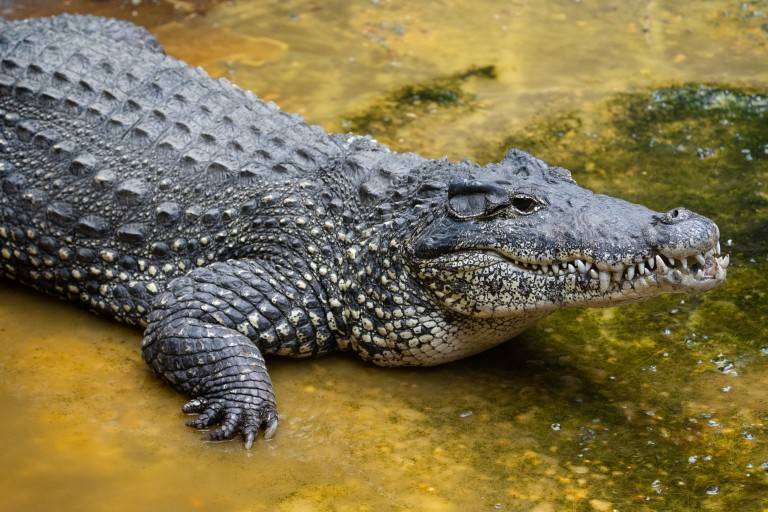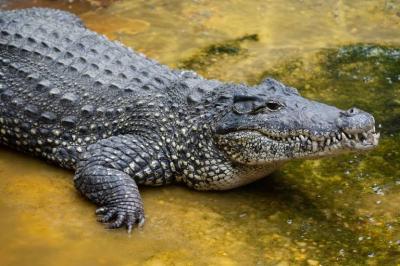A study has revealed that scientists documented the first known case of "virgin birth" from a female crocodile that lived in isolation for 16 years in a zoo in Costa Rica. The American crocodile laid 14 eggs in 2018 inside her enclosure, a not unusual phenomenon among reptiles kept in captivity. However, what surprised scientists was finding an egg after three months of incubation that contained a fully formed stillborn crocodile.
According to the study published on Wednesday in the journal "Biology Letters," researchers examined the genetic makeup of the crocodile embryo and found that its DNA sequence indicated it resulted from obligate parthenogenesis, meaning reproduction occurred without genetic contribution from males. This phenomenon, referred to by some scientists as "virgin birth," has been documented in other species of fish, birds, lizards, and snakes.
Scientists stated that this case is the first known example among crocodiles. In this phenomenon, a female egg cell can develop into an embryo without being fertilized by a male sperm cell. In the formation of the egg cell, the embryonic cell divides into four cells: one becomes the egg cell and retains the main cellular structures and jelly-like cytoplasm, while the other cells contain additional genetic material. One of these cells essentially acts as a sperm cell and merges with the egg to become "fertilized."
The American crocodile is at risk of extinction in the wild. The study suggests a hypothesis that obligate parthenogenesis may be more common among endangered species. Scientists believe that the case of "virgin birth" in Costa Rica could reveal new information about the ancestors of crocodiles from animals that lived on Earth during the Triassic period, around 250 million years ago.




